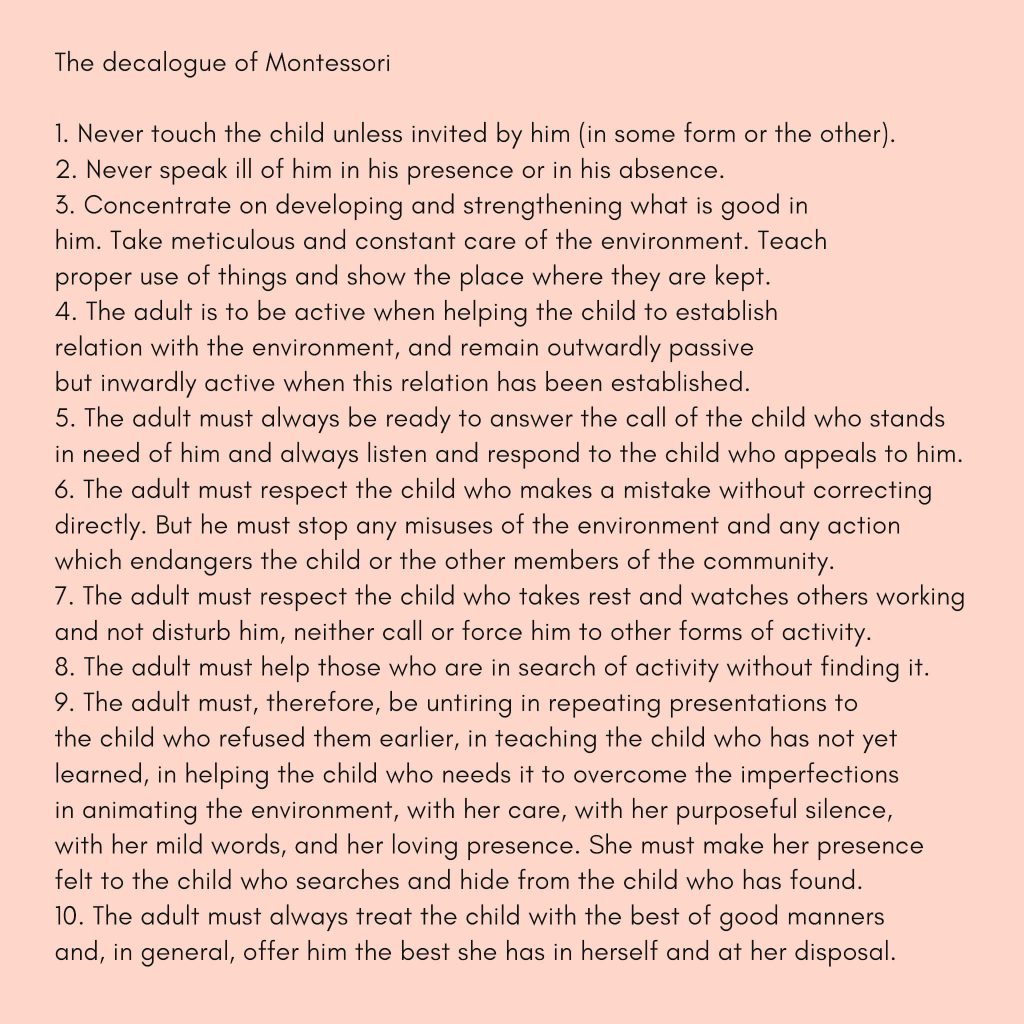The Decalogue of Montessori
Ok. So maybe the language is a bit bossy. But there is so much wisdom to be found in the “Decalogue of Montessori” that I’m hanging it up in my classroom in Amsterdam.
The oldest version of the Decalogue of Montessori was found in a 1957 Around the Child publication by the Association of Montessorians in Calcutta. It was described as “compiled from Dr Montessori’s lectures,” so not written by Dr Montessori herself, but an overview of her ideas. Definitely something for all adults to think about, especially as teachers.
Food for thought, non?

The Decalogue of Montessori
- Never touch the child unless invited by him (in some form or the other).
- Never speak ill of him in his presence or in his absence.
- Concentrate on developing and strengthening what is good in him. Take meticulous and constant care of the environment. Teach proper use of things and show the place where they are kept.
- The adult is to be active when helping the child to establish relation with the environment, and remain outwardly passive but inwardly active when this relation has been established.
- The adult must always be ready to answer the call of the child who stands in need of him and always listen and respond to the child who appeals to him.
- The adult must respect the child who makes a mistake without correcting directly. But he must stop any misuses of the environment and any action which endangers the child or the other members of the community.
- The adult must respect the child who takes rest and watches others working and not disturb him, neither call or force him to other forms of activity.
- The adult must help those who are in search of activity without finding it.
- The adult must, therefore, be untiring in repeating presentations to the child who refused them earlier, in teaching the child who has not yet learned, in helping the child who needs it to overcome the imperfections in animating the environment, with her care, with her purposeful silence, with her mild words, and her loving presence. She must make her presence felt to the child who searches and hide from the child who has found.
- The adult must always treat the child with the best of good manners and, in general, offer him the best she has in herself and at her disposal.

Simone Davies has more than 20 years’ experience as an AMI Montessori educator. Simone is the author of “The Montessori Toddler” and co-author of “The Montessori Baby” and “The Montessori Child” books, comprehensive guides to raising children in a Montessori way. She currently runs parent-child Montessori classes in Amsterdam at her school Jacaranda Tree Montessori. She also has a popular blog, instagram and podcast “The Montessori Notebook” and is mother to two young adults.